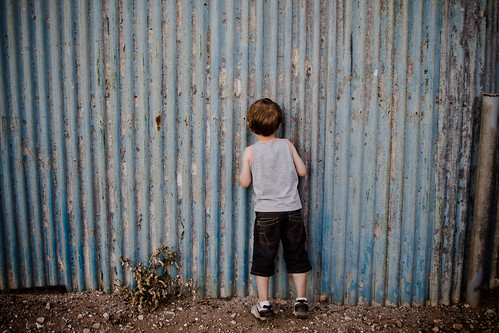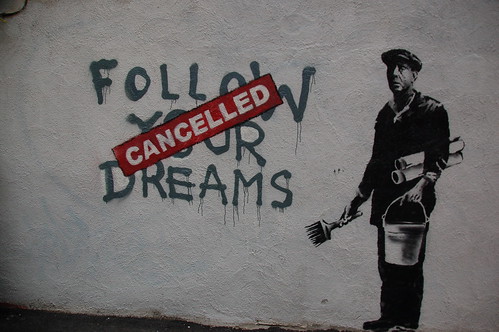Freedom
I want to talk about freedom.
The volume of statements about freedom is stifling as of late. There seems to be as many opinions about what freedom means as there are people stating them. The debate over "freedom" rages across the world, and it's quite honestly horrifying listening to what some believe "freedom" should mean, and the actions they're willing to take to restore their personal version of "freedom." Society doesn't have a really good grasp on an acceptable and transferable perspective toward what we know and understand about freedom. This is despite a collective human history ripe with examples of reduced or even worse, non-existent freedom. The definition of freedom has become so aggravatingly subjective. It's exceedingly ironic that the debate over what freedom means has caused a very un-free context where people are taking radical actions to impose their views about freedom on others. We've lost ground with respect to our lucid and common definition of freedom.
Where should we place the blame?
Relativism has indeed reared its ugly head and is winning the battle within our psyche's. Existentialism; a close cousin, is not far behind. Our perspectives have become our facts. Our contexts have lost an important foundation in objectivity as we seek escape from the tyranny of factual information to suit our personal wants and needs. Perhaps we can we find some common ground in defining freedom by figuring out what freedom is not?
There's a whole lot of people trying their best to live on this big old planet in some degree of elusive peaceful coexistence, but why is this peacefulness so elusive? We're emotional beings. Humans are to the best of our knowledge, (research suggests other living things also feel emotions,) the one collective inhabitant of Earth best able to access our emotional state of mind, and I'd say perhaps too willfully for our own good. Nonetheless we are definitely in touch with our emotions, so much so that we're willing to argue our opinions despite the quantifiable facts surrounding the topic of our argument; we do this all the time. So we're all just here together sharing our propensity to wear our emotions on our sleeves as we try to carve out a purpose for our lives and a wishing lucky break to make that happen, but we also share the inevitable disappointment, setback, hardship, and sorrow along the way. Living as we do amidst the many complicated structures of society and in such close proximity to others who more often than not perceive the world and their place in it differently than us leads to inevitable friction. We internalize every bit of challenge and conflict along the journey and the trauma that results is a deal breaker in the quest to feel "free."
No matter your ideological, social, or political perspective, when we have unsatisfied needs and the world is weighing heavy upon us, the sadness, grief, trauma, and feeling of helplessness inevitably creep in and we so desperately want to make that someone else's fault. Honestly it often probably is someone, or something outside of control that is at least in part to blame, but alas, nobody wants to have to go through hard things or hard times and also take full responsibility for them, so we lash out. Hurt people... hurt people.
Society en masse is only as vibrant as its weakest links. Do we do enough in society to combat the hardships of others in a concerted effort to mitigate the trauma they feel? Do we lead with empathy and collectively work to repair the links of our weakest community members and fellow human beings? Do we engage in an honest effort to understand the plight of others; their stories behind their stories, so we can work to support them and help them regain their sense of purpose and belonging? No, we definitely do not.
So here we are, scattered and disjointed in our sense of responsibility to take care of each other. This will be the demise of society as we know it if we don't change the tide of our awareness regarding each others stories. I've never had a bad outcome no matter how much I disagreed with someone or how much I believed their perspective was skewed by emotion and unsubstantiated confusion of reality when I simply said to that person, "look, I'm not judging you, I just want to understand better about what happened in your life to bring you to this place feeling like you do." Knowing the story behind a person's perspective or behavior is more important than knowing the purpose in front of it.
If I had set up a tent in downtown Ottawa, Canada during the recent occupation by a very large group of people protesting their perceived loss of personal freedom, and free of judgement told anyone who entered my tent that I wanted to hear about their problems in life, I'm pretty sure that the overwhelming majority of them would have a lot to say in reply. I'm also pretty sure that these neutral, non-threatening conversations would lead to some relative degree of trust, openness, and honesty. If I replied to them with a statement of understanding and a commitment to helping them resolve their problems, I can't imagine any of them turning me down, at least as far as they would probably need to see some proof and feel some assuredness that I was serious about that commitment. It would be the first step in an undoubtedly long process, but the relationship connection right there in that tent would be a strong first step.
If freedom is what we want, then we desperately need to provide social and emotional supports for people to feel free; to experience life that allows them to thrive in confidence that their needs are satisfied and they are empowered to pursue their dreams. There's far too many of us looking through the hole in the wall at what others have and experience in life without that being attainable in any systemic and enabling way for ourselves and the people we love.




Comments
Post a Comment